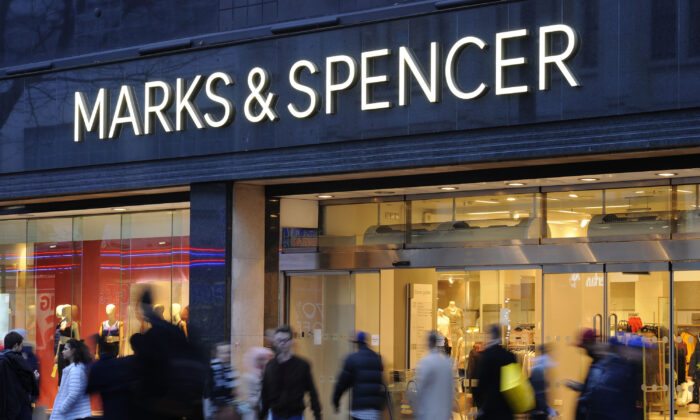Retail Managers Issue Warning of Unavoidable Job Cuts and Price Increases Following Budget Tax Increases
Firms have estimated that tax hikes could lead to a jump in costs of up to £7 billion a year.
Dozens of retail bosses have signed a letter to the chancellor, warning that the Budget will result in job losses and higher prices for shoppers.
The letter by 81 CEOs says retailers won’t be able to cope with the hit from higher employer national insurance contributions and living wage increases.
Heads of Amazon, Aldi, Boots, Marks & Spencer, Next, and Primark joined in the statement, arranged by the British Retail Consortium (BRC) and published on Tuesday.
Retailers warned Chancellor Rachel Reeves that total costs to the sector, resulting from Budgetary measures, could rise by up to £7 billion a year.
Currently, businesses pay a rate of 13.8 percent on employees’ earnings above a threshold of £9,100 a year. Labour raised the rate in its Budget to 15 percent from April next year and reduced the threshold to £5,000.
The measures are expected to hit part-time and lower earning employees hired by high street venues, retailers, and the leisure and catering sectors.
Retail, hospitality, and leisure properties with rateable values below £500,000 will be taxed under permanently lower rates from 2026–2027, with draft legislation introduced by the Treasury last week.
This tax relief will be funded by higher taxes on properties with a rateable value of £500,000 and above, including large distribution warehouses often operated by supermarkets and retail firms.
Elsewhere, minimum wages will rise to £12.21 an hour for those aged 21 and over.
The BRC said these measures will not only affect retailers directly, but also impact suppliers and increase costs the sector pays for goods and services.
In the letter to Reeves, retail bosses said that retail and hospitality are already among the highest taxed business sectors, paying 55 percent of profits in business taxes.
“For any retailer, large or small, it will not be possible to absorb such significant cost increases over such a short timescale. The effect will be to increase inflation, slow pay growth, cause shop closures, and reduce jobs, especially at the entry level.
“This will impact high streets and customers right across the country. We are already starting to take difficult decisions in our businesses and this will be true across the whole industry and our supply chain,” the letter said.
Proposed Changes
Alongside the Budget, the government published a discussion paper on business rates reform, inviting feedback from industry leaders and local government until March 2025.
The BRC letter said while the discussion paper recognized the need to reduce the burden for retail and hospitality, the sector will still see an increase in bills of £140 million in April 2025.
This will come owing to inflationary uplift and a reduction in the existing retail discount for those businesses that receive it.
“We are concerned the proposals merely redistribute rates within the industry and would see many retailers’ bills significantly increase. Changes must lead to a significant, permanent reduction of rates bills for all retail properties if they are to offset the effects of the extra costs above in any meaningful way,” the letter said.
The BRC urged the government to adjust the timings of the proposed changes to give firms time to adjust.
The group of retail CEOs want to meet with Reeves and discuss potential changes, including phasing the introduction of the national insurance lower earnings threshold, delaying timelines for packing levy implementations, and revisiting business rates proposals announced in the Budget.
The latest appeal to the government follows warnings by supermarket bosses in October. Heads of Sainsbury’s and Asda said that a “barrage of costs” coming from tax hikes will translate into higher prices for consumers.
Hospitality businesses also shared the sentiment earlier this month in a letter to Reeves. Some 209 hospitality businesses said that Budget measures are “unsustainable” and “regressive” in their impact on lower earners.
The GMB union said the warnings from retailers of job cuts owing to tax hikes were “utterly pathetic.”
GMB National Officer Nadine Houghton said in a statement: “Multi billion pound businesses pleading poverty because they’re being made to pay more to support public services is utterly pathetic.
“Most of these companies’ fortunes are already subsidized by the tax payer – they pay very low wages which then have to be topped up by in work benefits. And some – for example Asda – have been systematically trousering fortunes made by underpaying women workers.
“It’s only right that they should now contribute a bit more to rebuilding our country.”





